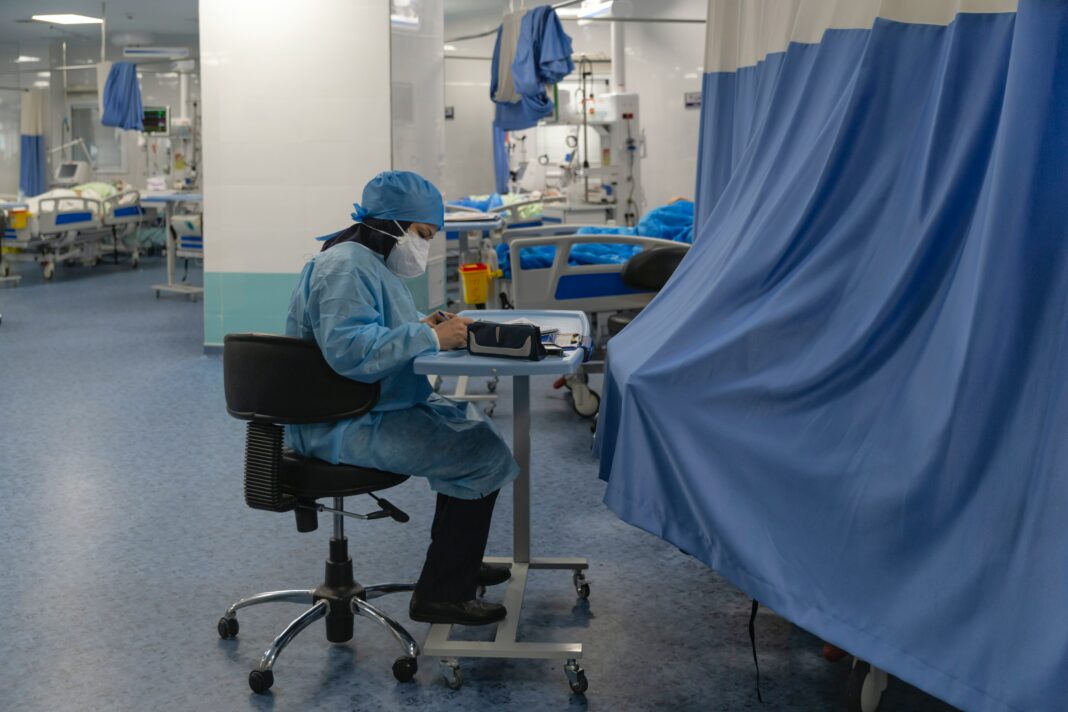By: Michelle Young, Opinions Editor
As of April 6, masks are no longer mandatory in healthcare settings. As one of the only settings in BC to have pandemic precautions, the decision is needlessly harmful and irresponsible. It puts those who require access to healthcare settings — like vulnerable patients — at higher risk of contracting COVID-19 and other airborne diseases. Walking into a healthcare facility and potentially contracting COVID-19 shouldn’t be something anyone has to worry about. If masks are to be mandated anywhere, healthcare settings should be the place.
Following the removal of this basic precaution against airborne illness, COVID-19 outbreaks have already sprung up across the province. This is completely avoidable, and yet with our Provincial Health Officer’s insistence in prematurely removing pandemic precautions — once again, disease is spread needlessly, and will affect those who are vulnerable to COVID-19 the most.
On March 30, CTV News reported that COVID-19 hospitalizations were at their highest since January. Why, then, a week later, are masks being dropped from healthcare settings? Henry argues we are at a place where COVID-19 is “manageable” to the healthcare system — should we then bring back smoking in all public spaces because the levels of lung cancer are manageable to the healthcare system? No, of course not, because preventive care is key to the health of the population and it would negatively impact those with asthma and other health conditions.
The hospital is supposed to be a safe setting, with a duty to protect its patients. Hospitals, if anyone was unaware, are full of people who are already being treated for illnesses. Exposing patients to a very infectious disease, when COVID-19 cases are high, is both irresponsible and ethically questionable. Various hospitals have now begun asking patients to stay home if they are experiencing flu-like symptoms. If sick people cannot go to the hospital, or must delay treatment and care, where are they supposed to go? The universal use of masks in healthcare settings would drastically decrease the amount of airborne disease, and it’s an easy preventative measure.
Our healthcare officials are playing pretend — acting as if they care about the elderly, disabled folks, immunocompromised people, and healthcare workers. They have consistently kept the public uninformed about long-term COVID-19 risks and transmission, and they are shameless in ignoring the voices of those who are most affected.
Despite an in-person protest, a nation-wide petition with over 27,000 signatures, and a condemnation from BC’s human rights commissioner on the decision — Minister of Health Adrian Dix has the audacity to defend their policies and continue to emphasize the “vaccine-only” approach in BC. It’s clear he isn’t listening. Vaccines alone are also currently insufficient: booster uptake is low, COVID-19 can still be transmitted while vaccinated and asymptomatic, and reinfections continue to harm the health of many — even those who were previously healthy. Vaccines themselves are important to reduce the severity of acute COVID-19, but they play a very small role in reducing the long-term effects of COVID-19 on the vascular system.
Henry says, “masks may be required in high-risk situations where a patient is vulnerable to infectious diseases.” This completely falls apart at a closer look — what is a high-risk situation? Who is being defined as high-risk? Even under this criteria, masks only might be required. One-way masking isn’t as effective as universal masking, and in many cases, patients cannot wear a mask due to the type of care they’re receiving.
I need to access healthcare, but getting blood tests and ultrasounds will likely not be considered high-risk settings. How would the technician know if I had chronic illness or disability? They wouldn’t, and even if they did, I likely still wouldn’t qualify as high-risk. Even if I was entirely able-bodied, I shouldn’t be exposed to this disease needlessly. How would they know if I have high-risk family members? They won’t. I can ask people to put on a mask, but this puts me in a situation of potentially upsetting the person who is providing care to me. At the time of publication, I’ll be in surgery — one that I’ve been on the waitlist for for nearly a year — and crossing my fingers that I don’t come out of recovery with a COVID-19 infection.
Patients shouldn’t need to advocate for themselves, and disabled folks already face high levels of healthcare bias. Now, patients have to worry about acquiring an extremely infectious virus that has the potential to leave them with long-term health consequences?
Henry has consistently spoken about “wearing masks where and when it makes sense.” Despite COVID-19 cases increasing, and active outbreaks in BC, she has removed the simplest protection against airborne illness. This does not make sense.
COVID-19 is not new. It has been circulating for years, and we now have the knowledge to easily reduce transmission. It is so simple — and yet our health officials refuse to do the bare minimum to protect our health.




